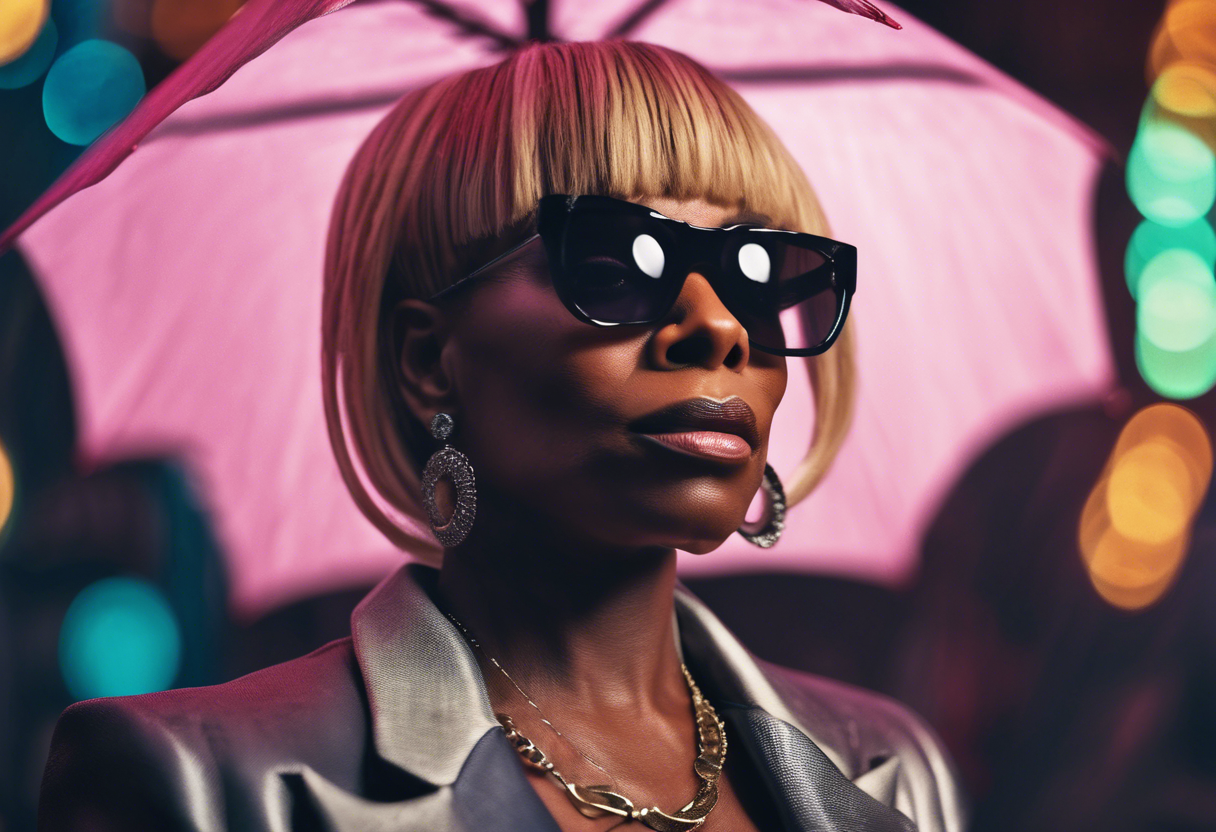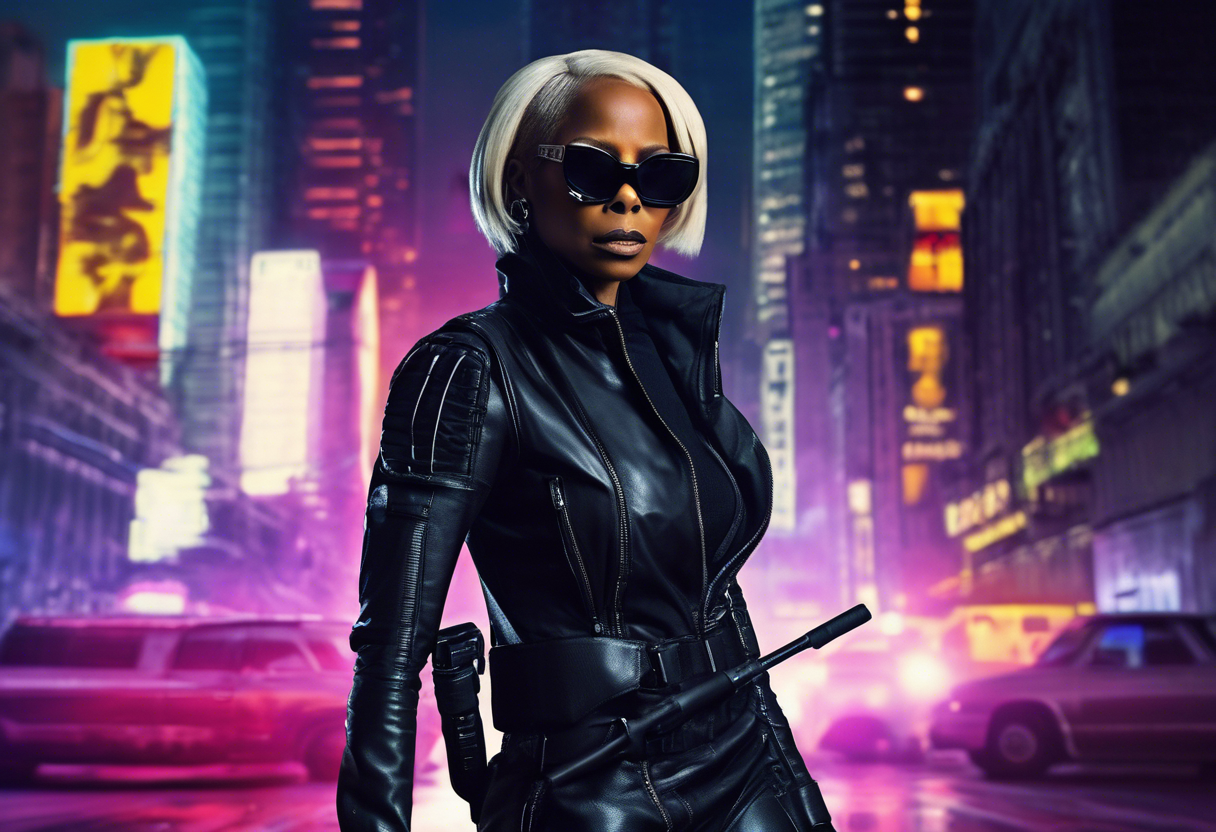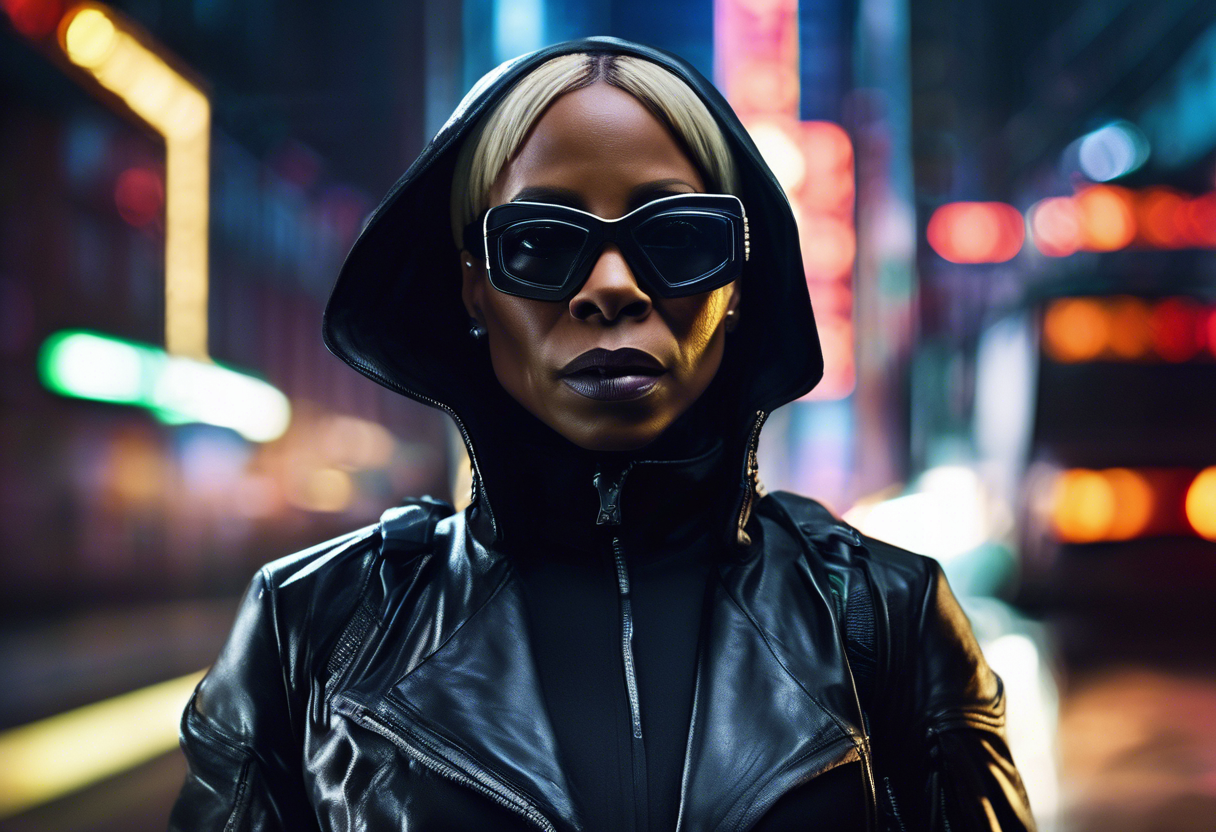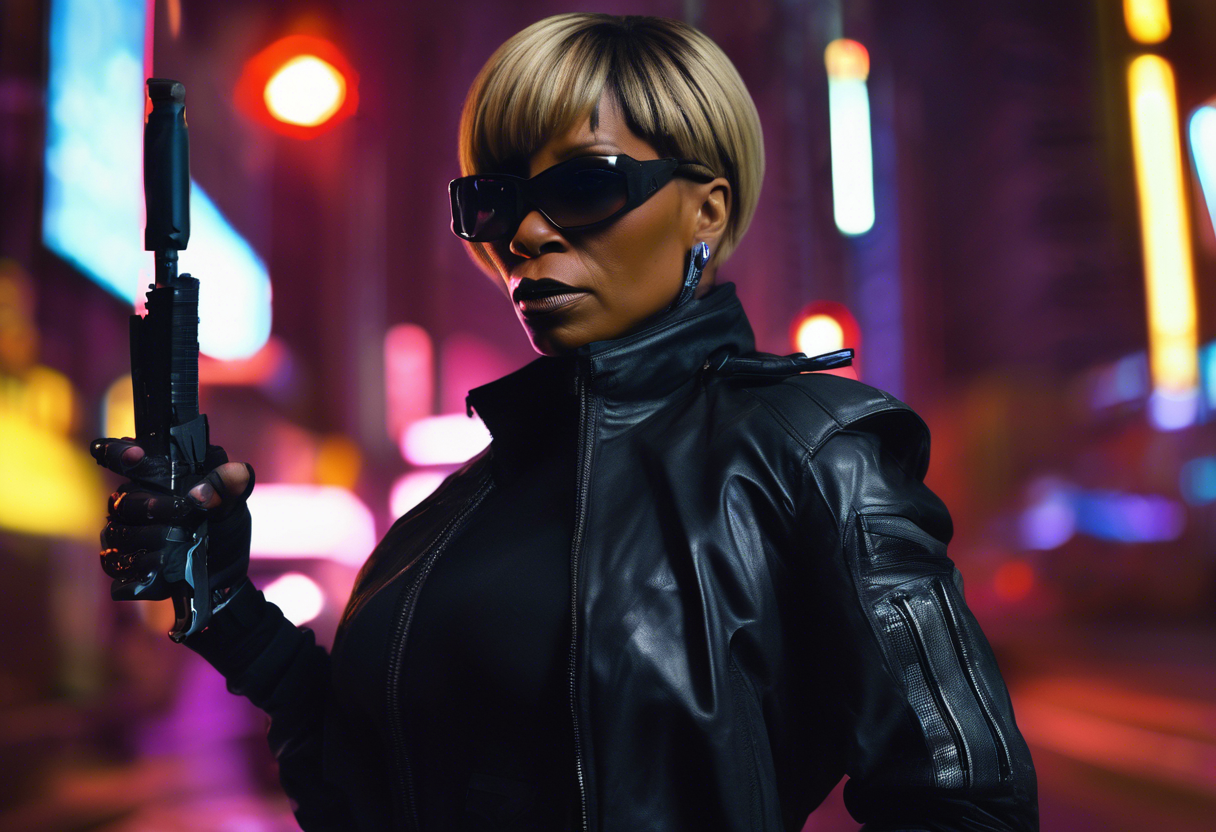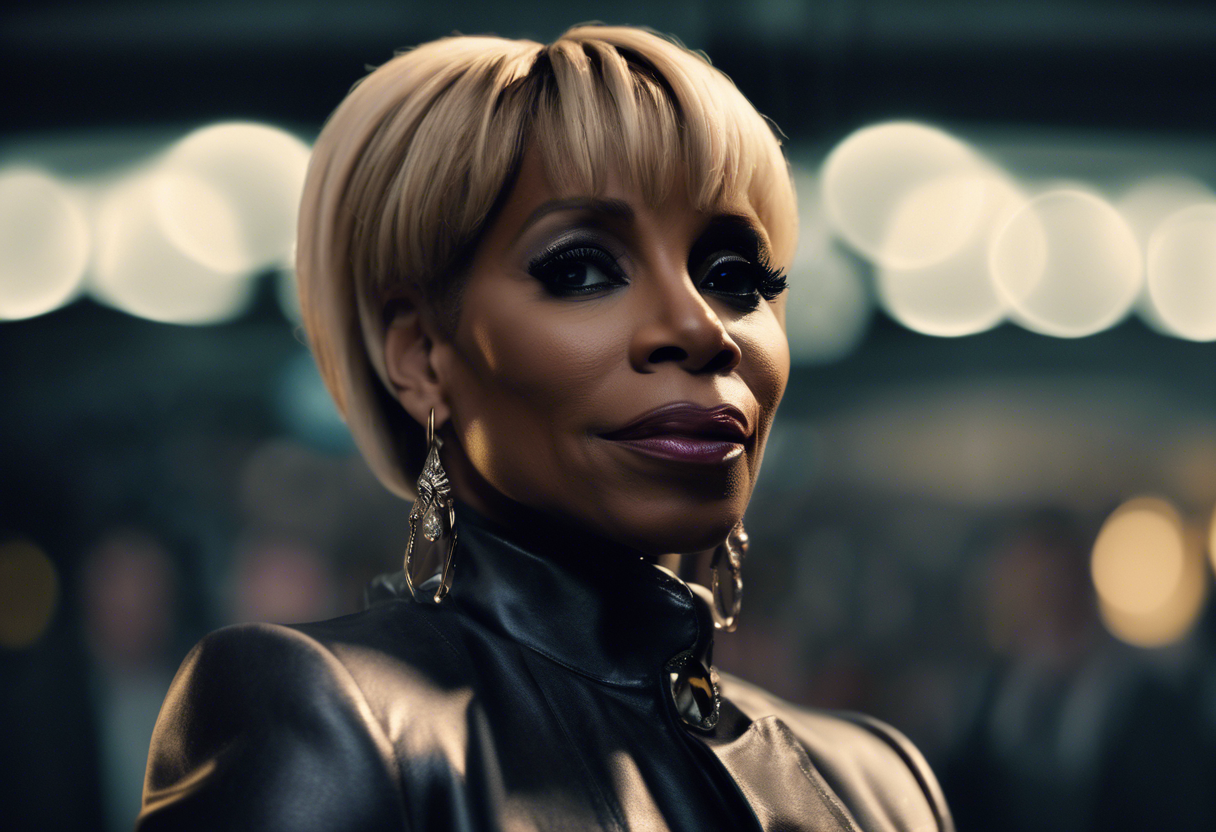Contents
Cha-Cha: The Time-Traveling Assassin of The Umbrella Academy
Introduction
Cha-Cha, a pivotal character in the Netflix series The Umbrella Academy, is a time-traveling assassin who, along with her partner Hazel, operates under the auspices of the Commission. Created by Gerard Way and Gabriel Bá for the comic book series, Cha-Cha’s character has been adapted and humanized in the Netflix adaptation by Jeremy Slater. This article delves into Cha-Cha’s origins, her role in the series, her character analysis, the themes and symbolism she embodies, her cultural impact, critical reception, and her enduring legacy.
Cha-Cha’s origins are rooted in the world of time travel and assassination, where she and Hazel are tasked with preventing Number Five from altering the timeline and stopping the apocalypse [1][3]. Her backstory, though not extensively detailed, highlights her ruthless efficiency and unwavering dedication to her missions. In the Netflix series, Cha-Cha is portrayed by Mary J. Blige, bringing a unique blend of ferocity and complexity to the character.
Role in the Series
Cha-Cha’s storyline in The Umbrella Academy is intricately woven into the narrative of the Hargreeves siblings and their attempts to prevent the apocalypse. Alongside Hazel, Cha-Cha is assigned to eliminate any threats to the timeline, with a particular focus on Number Five, who has the ability to time-travel and potentially alter the course of events [1][3].
Their journey involves numerous confrontations with the Hargreeves siblings, particularly Diego and Klaus, as they navigate through different timelines and attempt to fulfill their missions. Cha-Cha’s relationships with other characters are marked by her cold demeanor and lack of empathy, although the Netflix series introduces a more humanized version of her character. This humanization is evident in her interactions with Hazel, where their partnership evolves from a purely professional relationship to one with deeper emotional undertones [3][4].
Key events involving Cha-Cha include her relentless pursuit of Number Five and her involvement in the climactic events leading up to the apocalypse. Her conflicts are not only with the Hargreeves siblings but also with the moral ambiguities of her job, as she begins to question the true nature of her missions and the Commission she serves [3][4].
Character Analysis
Cha-Cha’s personality is defined by her ruthlessness and efficiency as an assassin. In the comic book series, she is depicted as a brutal killer with no qualms about her work. However, the Netflix adaptation adds a layer of complexity to her character, showing her as more than just a one-dimensional assassin. She exhibits a certain level of vulnerability and emotional depth, particularly in her interactions with Hazel [3][4].
Her motivations are initially driven by her duty to the Commission and the need to complete her missions. However, as the series progresses, Cha-Cha begins to question the morality of her actions and the true intentions of the Commission. This internal conflict makes her a more relatable and compelling character.
Cha-Cha’s strengths lie in her combat skills and strategic thinking, which make her a formidable opponent. Her flaws include her initial lack of empathy and her struggle with moral ambiguity. The development of her character is marked by her gradual humanization and the exploration of her emotional side, which adds depth to her persona [3][4].
Themes and Symbolism
Cha-Cha embodies several themes that are central to The Umbrella Academy. One of the primary themes is the exploration of morality and the gray areas between right and wrong. Through Cha-Cha’s character, the series delves into the consequences of following orders without questioning their moral implications. Her journey from a ruthless assassin to a character with moral doubts symbolizes the struggle for identity and purpose beyond one’s assigned role [3][4].
Another theme is the concept of time and its manipulation. As a time-traveling assassin, Cha-Cha’s actions have significant repercussions on the timeline, highlighting the complexities and dangers of altering the past. This theme is symbolic of the broader human fear of disrupting the natural order of events and the unpredictable outcomes that can result from such actions.
Cultural Impact
Cha-Cha has had a significant cultural impact since her introduction in both the comic book series and the Netflix adaptation. Her portrayal by Mary J. Blige in the Netflix series brought a new level of recognition to the character, making her a fan favorite among viewers. The humanization of Cha-Cha in the series has also sparked discussions about character development and the importance of adding depth to traditionally one-dimensional characters [3][4].
In terms of cultural significance, Cha-Cha represents a strong female character in a genre often dominated by male protagonists. Her complexity and multifaceted personality have inspired fans and contributed to a broader conversation about representation in media.
Critical Reception
Cha-Cha has received mixed but generally positive reviews from critics and audiences. The decision to humanize her character in the Netflix series was praised for adding depth and complexity to the narrative. Critics noted that Mary J. Blige’s portrayal brought a unique energy to the role, making Cha-Cha a compelling and relatable character [3][4].
However, some fans of the comic book series felt that the humanization of Cha-Cha deviated too far from her original character, which was more brutal and one-dimensional. This controversy highlights the challenges of adapting characters from one medium to another while maintaining their core essence.
Legacy
Cha-Cha’s enduring appeal lies in her complex and multifaceted character. She has inspired other works and character archetypes by challenging traditional notions of what it means to be a villain or an antagonist. Her character development serves as a model for how to add depth and humanity to characters without compromising their original intent.
In contemporary discussions, Cha-Cha’s character is often cited as an example of successful character humanization and the importance of moral ambiguity in storytelling. Her legacy continues to influence popular culture, particularly in the realm of superhero and science fiction narratives.
References
- https://umbrellaacademy.fandom.com/wiki/Cha_Cha_(Netflix)
- https://en.wikipedia.org/wiki/List_of_The_Umbrella_Academy_characters
- https://screenrant.com/umbrella-academy-hazel-and-cha-cha-trivia/
- https://screenrant.com/umbrella-academy-hazel-cha-cha-humanized-redemption-arc/
- https://www.refinery29.com/en-us/2019/02/225393/what-happened-to-cha-cha-umbrella-academy-comics

